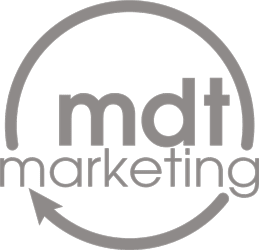Modern practices in technology and automation that can help you gain industry insight and improve promotional efforts:
Marketing technology is developing at an exponential rate, but when it comes to hands-on experience with our existing and potential clients, there’s some commonality within their technology and marketing goals:
Centralization
New systems and technology are constantly promoted and implemented, but they’re typically “uni-taskers.” While each individual system may be beneficial, it can become a significant pain point for our clients when they’re trying to manage 5 to 10+ systems that all have different purposes.
Measuring ROI
Obviously, ROI is key in any operation, but I’ve noticed that even if there’s a marketing system or strategy proposed that can improve sales or operations, clients are hesitant to implement if the ROI can’t be measured (which is nothing new. It’s the typical bottle neck between the marketing director and their board. If they can’t “prove” it’s increasing sales, the system/strategy will be cut).
Latest Buzz Word
My experience in the industry has been that most clients (not all) want to have the system or market that “everyone’s talking about” at the time, regardless if that coincides with what is actually a good tactic:
- Five years ago, it was texting, but regulations and irritated prospects show that may not be the best approach
- A few years ago, it was social media marketing, but tracking ROI, lead flow and privacy can be an issue
- Today, even words that have definitions are loosely understood across the board:
“Automation”: Everyone wants automation, but that can have different meanings in daily use:
How automated is it?
A lot of automation software requires significant technical knowledge, manual implementation, hands-on management, daily monitoring and campaign/system updates
Most companies get excited about marketing automation, but they also want to be in control of their marketing efforts and may not actually want a system to make those decisions for them
There are many different systems to automate marketing efforts, but there isn’t a one-size-fits-all/does everything system (yet). Until that time, clients have to rely on individual/separate systems to manage automation, and when there are more segregated systems in place, more people are needed to manage those systems and there’s more of a chance that something falls through the cracks.
“Conversions”: A huge buzz word yesterday, today and tomorrow, but it’s becoming ambiguous. Ask our clients what counts as a conversion and you’ll get a lot of different answers.
In summary, differentiating between exciting new technologies and practical implementation of that technology can be a difficult balancing act. Working with a systems integration professional and/or a centralized reporting dashboard for your automation needs can be a strong approach to getting the most out of your current technology and laying a solid foundation for what’s coming down the pike.
